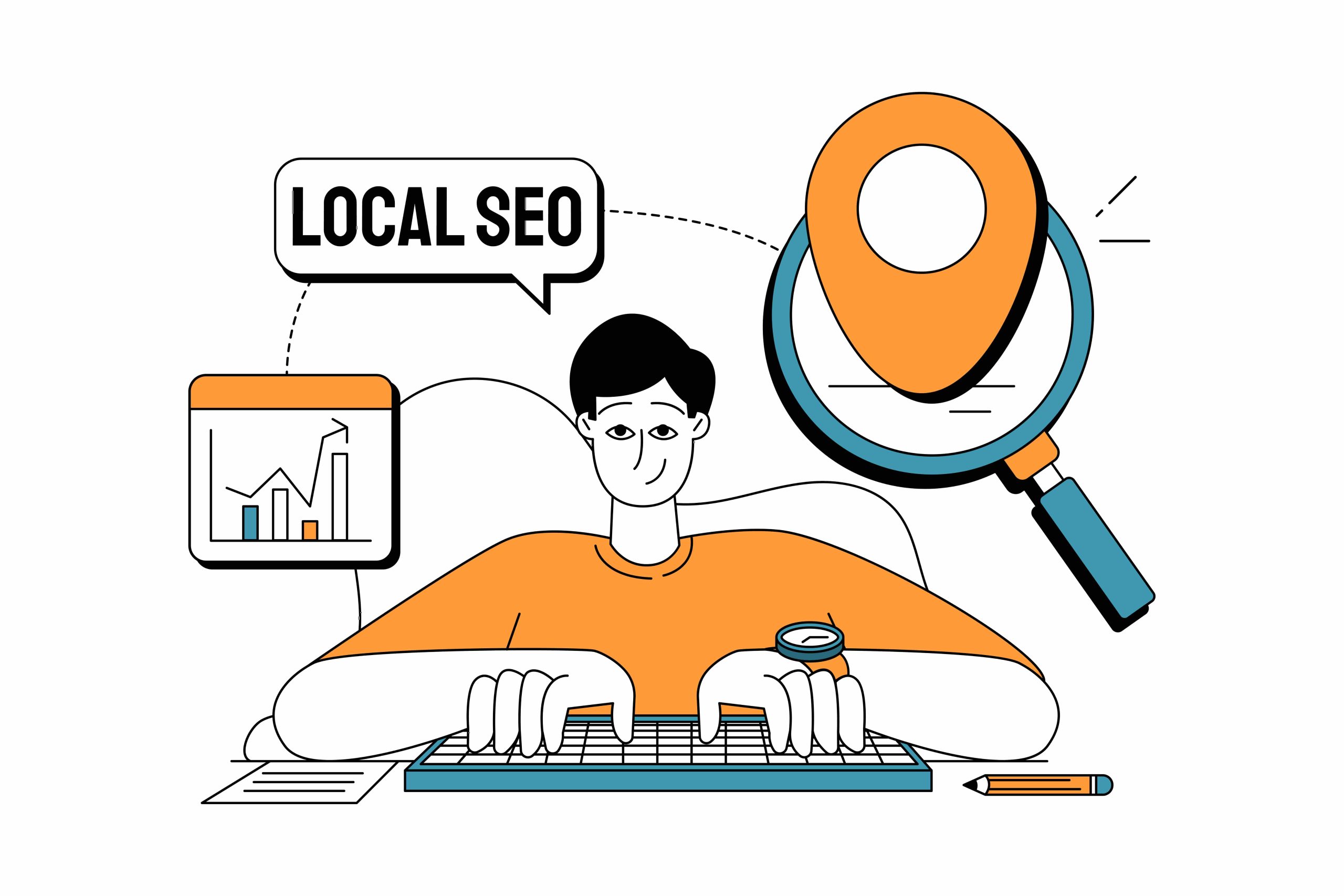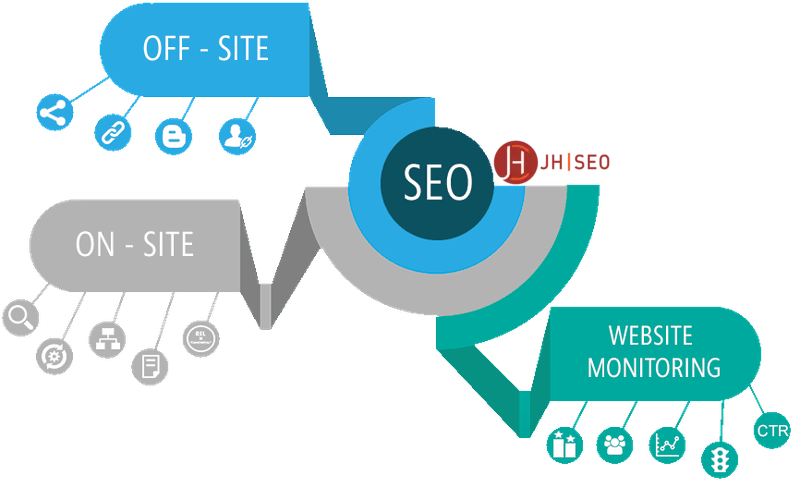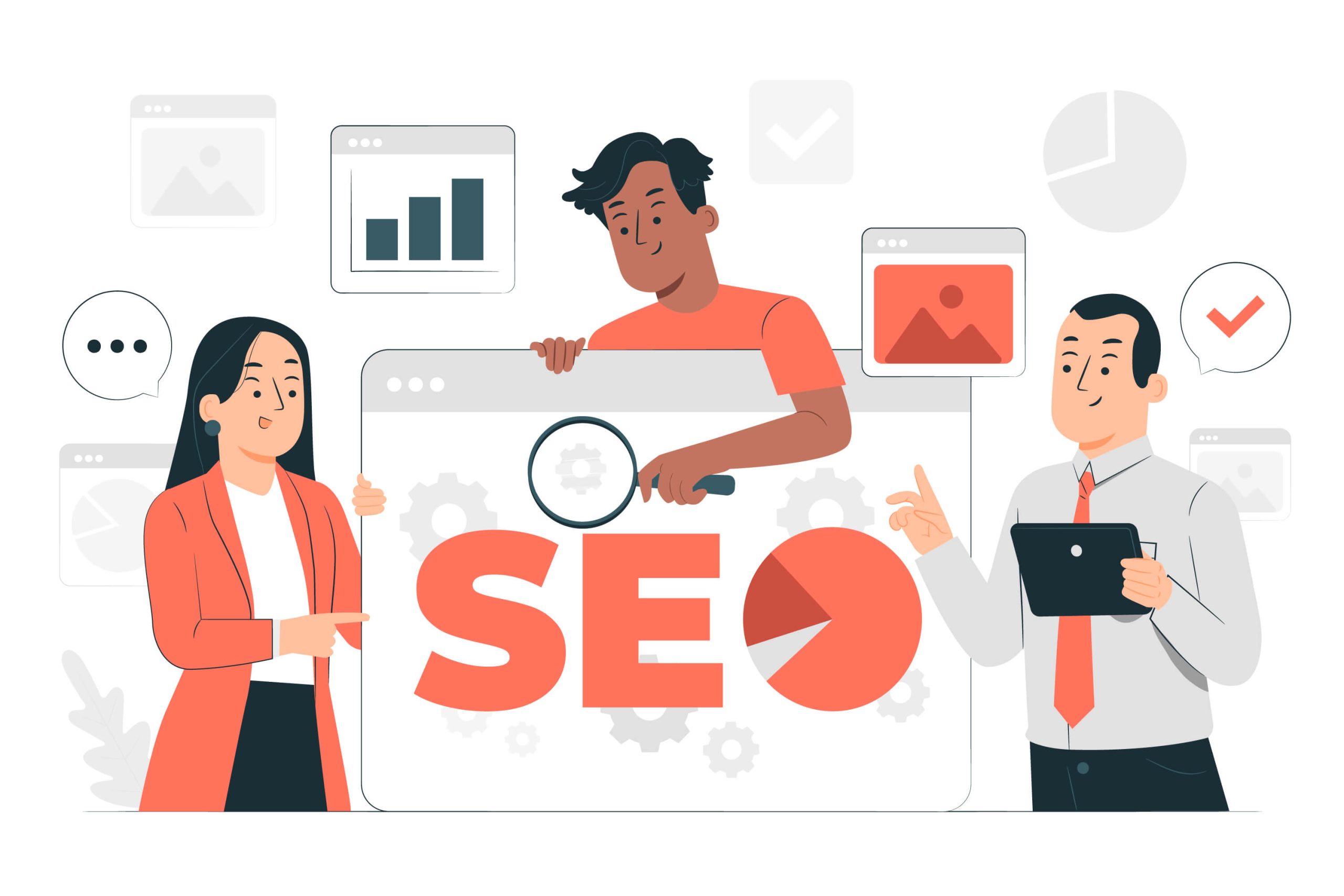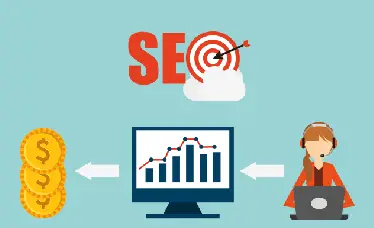For many small business owners, the question of “how much does SEO cost for a small business” often arises as they strive to improve their online visibility and drive more organic traffic to their websites. Search Engine Optimization (SEO) is an essential part of any digital marketing strategy, but the costs associated can be confusing and highly variable.
Introduction to SEO for Small Businesses
What is SEO and Why is it Necessary?
SEO, or search engine optimization, is the process of optimizing a website to improve its visibility when people search for products or services related to the business in Google and other search engines. A well-optimized website increases the likelihood of appearing on the first page of search engine results pages (SERPs), which can lead to increased website traffic and potential sales.
Benefits of SEO for Small Enterprises
Investing in SEO offers numerous benefits for small businesses. It enhances online visibility, builds brand credibility, and helps achieve a competitive advantage by reaching more potential customers than competitors. Additionally, effective SEO strategies drive organic search traffic, which is more cost-effective and sustainable than paid search campaigns.
Factors Influencing SEO Costs
Scope of Your SEO Needs
The SEO costs for a business can widely vary depending on the scope of the required services. Whether it involves basic keyword research or a comprehensive SEO audit, the extent of the required services will determine the overall cost.
Types of SEO Services
On-Page SEO
On-page SEO involves optimizing the content and structure of your website to make it search engine friendly. This includes optimizing headings, content, and images, and ensuring that all parts of the website contribute positively to your overall SEO efforts.
Off-Page SEO
Off-page SEO focuses on increasing the authority of your domain through link-building and other techniques outside your own website. Effective off-page strategies can help improve your site’s position in search rankings.
Technical SEO
Technical SEO addresses the non-content elements of your site, including improving the backend structure and how pages are linked. Improvements in site speed, mobile-friendliness, and indexing help search engines crawl and index your site effectively.
Agency vs. Freelancer: Cost Implications
Choosing between SEO agencies and freelancers can significantly affect costs. Agencies often offer more comprehensive services and have a proven track record, but they may be pricier. Freelancers or smaller SEO providers might offer more personalized services at a lower cost.
Industry and Competition
The competitiveness of your industry also impacts SEO pricing. Highly competitive markets require more intensive SEO efforts, including advanced link building and extensive content creation, to outrank competitors.
Geographical Targeting
Local SEO is vital for businesses that operate in specific geographical areas. The complexity of local SEO can vary greatly depending on the competitiveness of the region you are targeting, which in turn influences the cost.
Common Pricing Models for SEO Services
Monthly Retainers
Monthly SEO services are a common pricing model for SEO, providing ongoing support for your SEO needs. This model suits businesses looking for long-term improvements in their search rankings and online presence.
Project-Based Pricing
Project-based SEO is another popular pricing model, especially for specific, one-time projects like website overhauls or campaigns. Project based fees can vary significantly based on the complexity of the project.
Hourly Rates
Hourly SEO services are often utilized for smaller tasks or when businesses need specific services on a short-term basis. This can include tasks like minor updates or consultations.
Performance-Based Pricing
Some SEO companies offer performance-based pricing, where you pay based on the results achieved, such as ranking improvements or increases in traffic.
Typical SEO Budgets for Small Businesses
Entry-Level SEO
For small businesses just starting with SEO, costs can be relatively low. Entry-level SEO services may include basic keyword optimization and simple link-building efforts, which can provide a foundation for future SEO work.
Mid-Range SEO
A more substantial investment in SEO, suitable for small to medium-sized businesses, might include a comprehensive SEO strategy with regular content creation, advanced link building, and enhanced keyword optimization.
High-End SEO Services
At the high end, SEO services can be extensive, including full-scale SEO campaigns. These are designed for businesses aiming to achieve and maintain high search rankings in competitive industries. Services may involve detailed technical SEO audits, customized content strategies, and sophisticated link-building operations.
How to Budget for SEO
Budgeting for SEO (Search Engine Optimization) is a crucial component of digital marketing strategy for businesses aiming to enhance their online visibility and attract more organic traffic to their website. Properly budgeting for SEO cost involves several steps that ensure efficient use of resources while aiming for the best possible outcomes. Here’s a structured approach to help you budget effectively for SEO:
Assessing Your Business Goals and Budget
When planning your SEO budget, it is crucial to align your spending with your overall marketing budget and business goals. Determine what you are willing to invest based on your expected return on investment (ROI).
ROI Expectations from SEO Investments
Understanding the potential return on your SEO investment is key to justifying the spend. SEO typically offers a high ROI by bringing more organic traffic and potential sales to your site.
Long-Term SEO Budgeting Tips
Investing in SEO should be viewed as a long-term strategy. Budgeting for ongoing SEO efforts is essential for maintaining and improving search rankings over time.
Allocate Budget According to Needs
Your budget allocation should reflect the priorities identified in your SEO audit and strategy planning. For instance, if your site has technical issues, allocating funds to technical SEO should be a priority. The budget should cover:
SEO Tools and Software
Tools for keyword research, analytics, performance tracking, and competitor analysis.
SEO Services
If you are outsourcing to SEO agencies or consultants.
Content Development
Costs associated with creating, editing, and designing content.
Training and Development
For keeping your team updated with the latest SEO trends and techniques.
Monitor, Measure, and Adapt
SEO is not a set-and-forget process. Continuous monitoring and measurement against your defined goals are crucial. Use analytics tools to track progress and ROI. Based on these insights, be prepared to adjust your strategies and reallocate your budget to focus on the most effective activities.
For small business owners, understanding how much does SEO cost and how to effectively allocate a SEO budget are vital steps in gaining a competitive advantage online. By choosing the right SEO pricing model and investing wisely in SEO tasks, businesses can achieve significant improvements in their website traffic and overall online presence.
Choosing the Right SEO Service Provider
What to Look for in an SEO Agency or Freelancer
When selecting an SEO provider, look for experience, expertise, and a solid track record of success. The right provider should offer transparent reporting and a clear strategy tailored to your business needs.
Questions to Ask Potential SEO Service Providers
It is important to ask detailed questions about their approach, past successes, and how they plan to improve your search rankings and SEO performance.
Red Flags to Avoid in SEO Offers
Be wary of SEO offers that promise instant results or employ black-hat SEO techniques that can ultimately harm your site’s credibility.
Comprehensive FAQs on SEO Costs and Strategies for Small Businesses
How Does the Complexity of My Business's Market Impact SEO Costs?
The complexity of your market and the competitiveness of your industry play crucial roles in determining SEO costs. Businesses in highly competitive sectors may find that their SEO budget needs to be higher to achieve meaningful search rankings in search engine results pages (SERPs). This is because more intensive SEO efforts, such as high-level keyword research, sophisticated link building, and comprehensive SEO audits, are required to outperform competitors. Local SEO services can also vary in cost, particularly if targeting highly competitive, location-specific keywords.
What SEO Strategies are Most Effective for Small Businesses Looking to Improve Their Online Visibility?
Effective SEO strategies for small businesses should focus on both on-page SEO and off-page SEO. On-page SEO includes optimizing the website content for search engines and users—ensuring it’s search engine friendly and packed with relevant, high-quality content. Off-page SEO mainly involves link building from authoritative sites to increase the site’s credibility. Additionally, technical SEO plays a critical role in ensuring the website’s backend is optimally configured for search engine algorithms. Utilizing SEO tools provided by SEO companies can help streamline these tasks, making them more manageable and effective.
How Do Search Engine Algorithms Impact SEO?
Search engine algorithms are complex systems used to retrieve data from their databases and instantly deliver the best possible results for a query. As these algorithms change, sometimes frequently, SEO strategies must evolve to comply with new standards. This means that what works today might not work tomorrow, making continuous SEO efforts crucial to maintaining high search rankings.
Can Small Businesses Effectively Manage SEO In-House or Should They Hire Professionals?
While some aspects of SEO, such as basic content updates and simple keyword incorporation, can be managed in-house, most business owners find significant value in hiring professional SEO providers. SEO agencies with a proven track record offer the expertise necessary to handle complex tasks such as technical SEO, detailed SEO audits, and strategic link building that can dramatically improve search engine results. Additionally, SEO professionals stay abreast of the latest search engine algorithm changes and can adjust strategies accordingly, ensuring ongoing SEO success.
How Should Small Businesses Measure the Success of Their SEO Investments?
The success of an SEO investment can be measured through various metrics that reflect the SEO plan’s effectiveness in improving online sales and website traffic. These metrics include organic search rankings, the volume of organic traffic, and the conversion rate from the traffic generated. Additionally, businesses should assess the ROI by comparing the cost of the SEO services against the increase in revenue attributed to SEO. Regular SEO reports from your SEO provider can help track these metrics and provide insights into what’s working and what might need adjustment.
How Long Does It Take to See Results from a Newly Implemented SEO Strategy?
SEO results typically do not happen overnight. Most SEO experts agree that it can take anywhere from three to six months to start seeing the impact of a new SEO strategy, with significant results potentially taking a year or more. The time frame can vary depending on several factors, including the level of competition, the current state of the business’s website, and how intensive the SEO activities are. Continued adjustments and optimizations are crucial as search engine algorithms evolve and market dynamics change.
What Are Some Common Missteps to Avoid When Planning an SEO Strategy?
When developing an SEO strategy, small businesses often face unique challenges that can lead to common missteps. To optimize the impact of your SEO efforts and ensure a competitive advantage in search engine results pages (SERPs), it’s crucial to avoid these frequent errors. Here are key pitfalls to steer clear of, along with strategic insights into managing SEO costs effectively:
Underestimating the Importance of SEO Budgeting
Determining how much does SEO cost for a small business can be tricky. A common misstep is not allocating a sufficient SEO budget. SEO should be seen as an essential part of your marketing budget, not just an optional add-on. Underfunding can lead to cutting corners and choosing cheap SEO services that don’t deliver results, impacting organic search performance negatively.
Ignoring the Need for a Comprehensive SEO Plan
Some businesses jump into SEO without a coherent SEO strategy. This approach often overlooks crucial components such as technical SEO, keyword research, and content creation. An effective SEO plan encompasses on-page SEO, off-page SEO, and technical improvements. Each element plays a vital role in enhancing your website’s visibility and search engine ranking.
Overlooking Local SEO Opportunities
For small businesses, especially those serving specific geographical areas, ignoring local SEO can be a significant oversight. Location specific keywords, local search engine optimization tactics, and location-based search results can drive relevant website traffic and increase online sales.
Expecting Immediate Results
SEO is not a quick fix. It requires time and consistent effort. A common misstep is expecting immediate results and abandoning efforts prematurely if dramatic improvements in search rankings are not seen right away. SEO is a long-term investment, and patience is key to achieving substantial outcomes.
Neglecting SEO Updates and Trends
Search engine algorithms are continually evolving. An outdated understanding of SEO can lead to ineffective strategies. Staying updated with the latest SEO trends and algorithm changes is crucial for maintaining and improving your SERP rankings.
Choosing the Wrong SEO Provider
Not all SEO agencies or SEO consultants are created equal. Selecting a provider without a proven track record or the necessary expertise can lead to disappointing results. It’s important to choose SEO professionals who understand your industry and have a solid reputation.
Failing to Track and Measure SEO Success
Without proper tracking and analysis, you can’t measure the success of your SEO campaign or understand where improvements are needed. Investing in quality SEO tools and software helps monitor key metrics like traffic, conversion rates, and keyword performance.
Inadequate Link Building Strategies
Effective link building is a vital part of SEO strategies but resorting to unethical practices (like buying links) can do more harm than good. Focus on earning high-quality backlinks that add value to your content and enhance your site’s authority.
Conclusion
Key Takeaways
Understanding the different factors that influence SEO pricing can help you make informed decisions about investing in search engine optimization.
Next Steps for Implementing an Effective SEO Strategy
With a clear understanding of SEO costs and budgeting, you can proceed to select the right SEO services that will best meet the needs of your small business, ensuring a cost-effective and successful online presence.



































































































































































































































